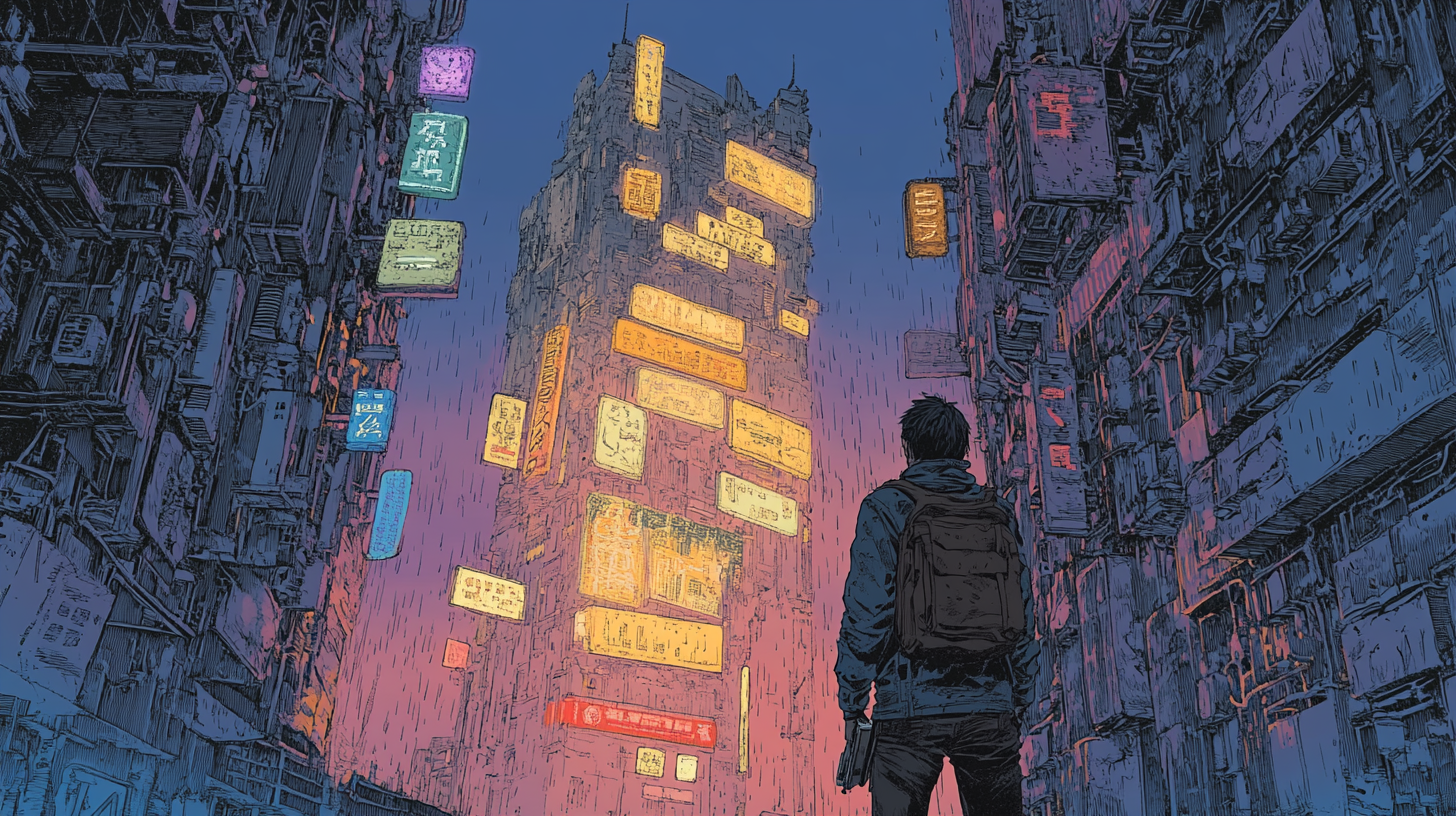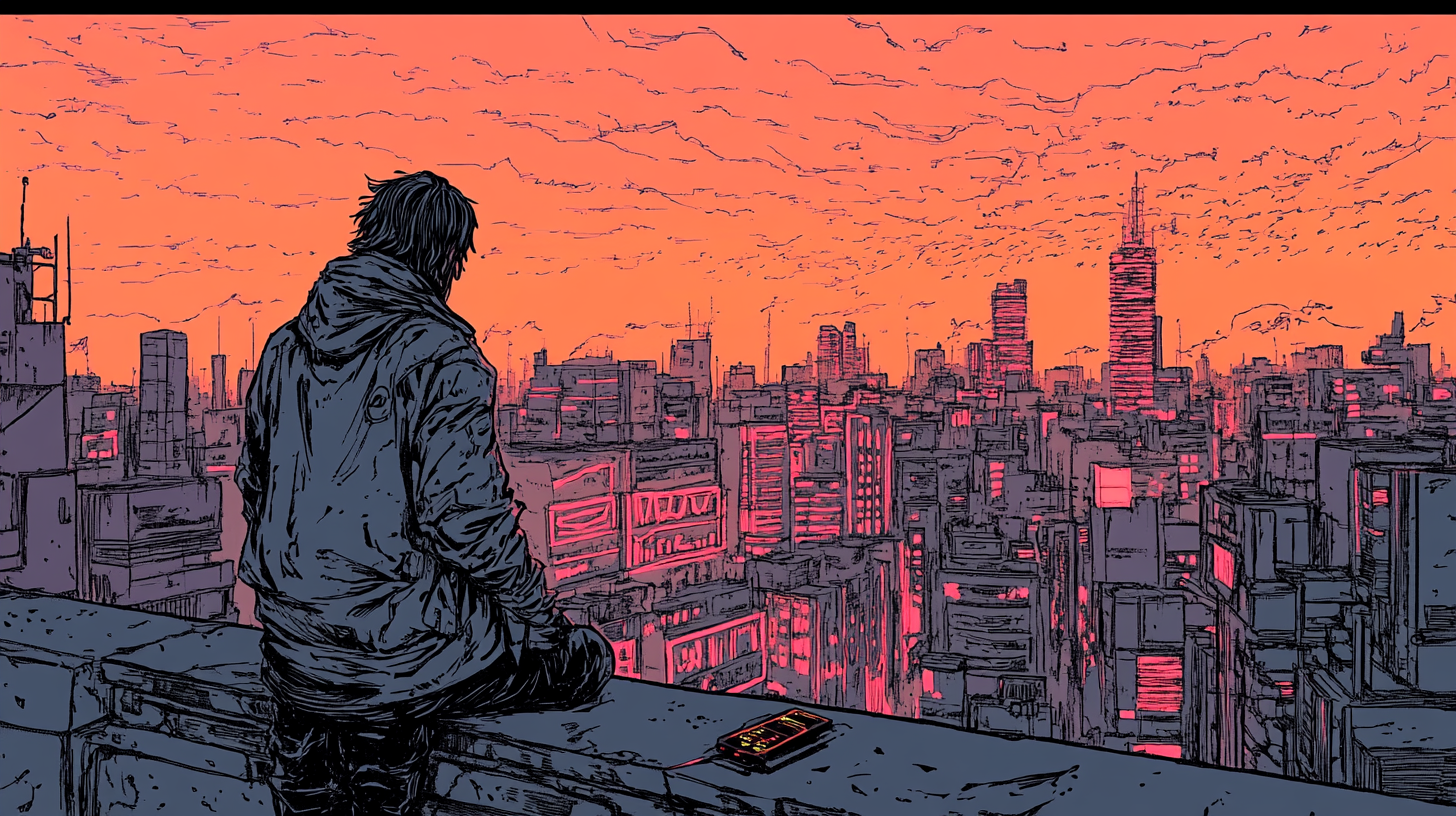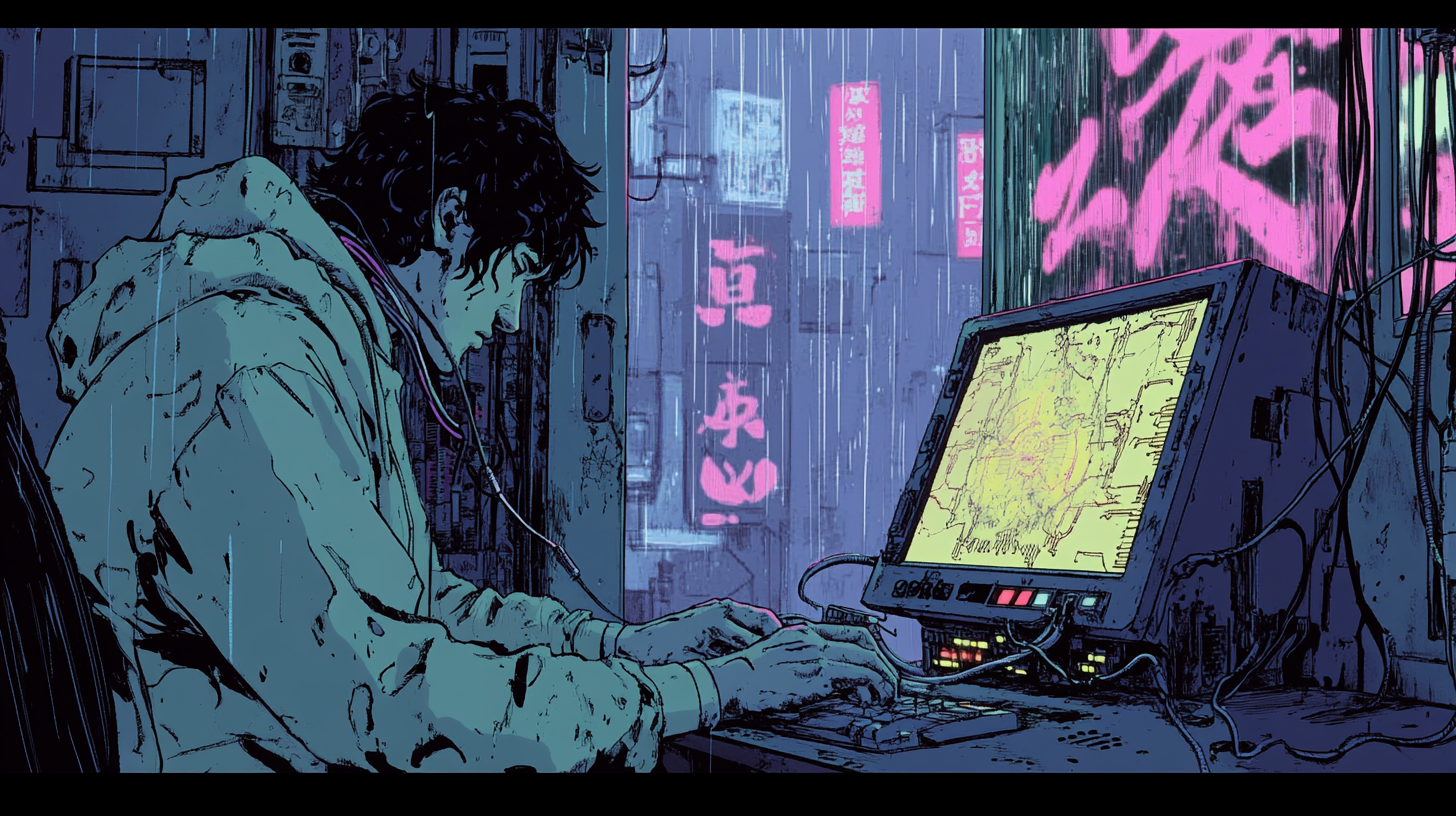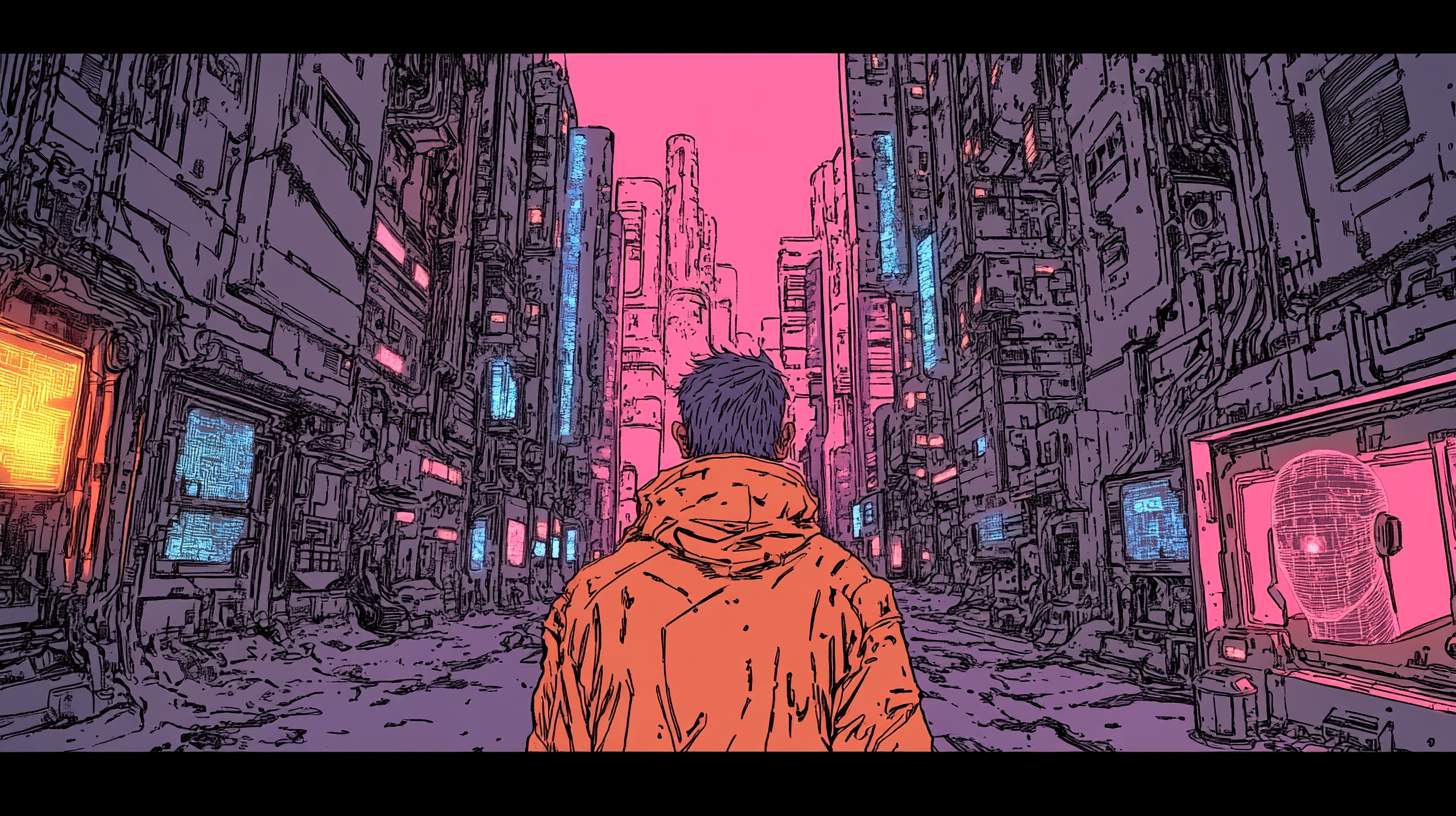Case Finds Redemption in "Neuromancer"
In William Gibson’s "Neuromancer," Henry Dorsett Case finds redemption not through justice or glory, but by reclaiming his code and purpose in a world stripped of law, faith, and order.

When William Gibson's "Neuromancer" emerged in 1984, it didn't just define the cyberpunk genre. It introduced readers to a gritty digital frontier and a new kind of American antihero. Henry Dorsett Case is no beacon of virtue. At first glance, he's a burnout—a jacked-up hacker living in the gutters of Chiba City, numbing himself with drugs and regret. But beneath the cybernetic haze and corporate decay lies something older. He is a man broken by his own choices who still carries a code.
In a world devoid of law, faith, or moral clarity, Case doesn't preach or pose. He acts. His journey is not about restoring society's justice but about reclaiming his own honor. Like a gunslinger stripped of his weapon, he must first heal, then answer the call to ride again—not for glory but to settle the account written in his own soul. His redemption is earned, not granted.
The Fallen Man – From Talent to Wreckage
Before the haze of drugs and alleyway shadows, Henry Dorsett Case was a top-tier console cowboy. His mind moved through cyberspace faster than any rival, riding the matrix like a rodeo star breaking wild code. He lived for it, thrived in the pulse of data streams, and believed himself untouchable. But arrogance is the classic flaw of the gifted, and Case paid the price. After stealing from his employers, they didn't kill him. They crippled him. They burned his ability to jack in, severing him from the digital world he called home.

That fall is critical to understanding Case. He isn't just down on his luck—he's a man who squandered his gifts and is now living with the consequences. The world of "Neuromancer" offers no forgiveness. There are no courts, no church bells, no guiding institutions. Just corporations, hustlers, and artificial minds that play with human lives like game pieces.
But in this scorched world, Case doesn't vanish. He endures. He sinks low, but he doesn't fully break. When the mysterious figure Armitage offers him a second chance, Case doesn't hesitate. His decision isn't driven by noble ideals. It's the spark of responsibility—the buried instinct to become something more than a ghost in his own body. In accepting the job, Case begins the slow climb out of the wreckage, not as a victim but as a man determined to rise again on his own terms.
A Man on a Mission – Duty, Sacrifice, and Resolve
When Case's nervous system is surgically repaired and his access to the matrix restored, he doesn't simply return to old habits. He doesn't flee, vanish, or regress. Instead, he takes the job offered by Armitage and steps back into the cockpit of the digital frontier with a new sense of focus. He is not the same reckless thief who was burned. This time, he has something to prove—not to others, but to himself.

In the landscape of classic American storytelling, there's always room for the man who's fallen but stands again. Case fits this mold, but with a cyberpunk twist. He does not chase money or revenge. He doesn't even know the full picture of what he's involved in. What matters is that he takes the mission and sees it through. Each encounter, each layer of manipulation, strengthens rather than weakens him. He becomes sharper, leaner, and more resolved.
One of the clearest signs of his growth is his relationship with Molly. While theirs is not a romance in the traditional sense, Case's loyalty to her runs deep. He fights to protect her, and when he learns the extent of Armitage's deception, he continues the mission not for payment but to honor the pact they share. In a world where most people are controlled or discarded, Case remains loyal and alert.
By the time he reaches the climax of the story, Case is no longer chasing a second chance. He is fulfilling a duty anchored in sacrifice and steady resolve. In doing so, he reclaims more than his talent—he reclaims his manhood.
Delivering Justice, Unwitting or Not
Case never sets out to deliver justice. He's not driven by revenge, moral clarity, or some grand vision of restoring order. His world doesn't allow for such notions. In "Neuromancer," institutions have collapsed into irrelevance. There are no governments worth trusting, no courts that mete out justice, no higher authority to appeal to. The power lies with megacorporations and artificial intelligences, entities that bend human destiny to their own opaque ends.

And yet, by the novel's conclusion, Case has helped restore a kind of balance. The mission he completes—unraveling the secrets of the Tessier-Ashpool family and facilitating the merger of Wintermute and Neuromancer—represents a profound shift in the cosmic order. Though Case never fully understands the implications, his role is essential. He becomes the catalyst through which a fragmented intelligence is unified. This is not justice in the legal sense. It is something older and deeper—a correction, a reckoning, a rebalancing of forces far beyond his grasp.
What makes Case's role meaningful is not just that he completes the task. It is that he does so with a steady hand. He resists manipulation, pushes past fear, and sees it through. When others falter, Case acts. His clarity of purpose and unwillingness to quit make him the kind of man through whom even larger destinies can turn.
Case shows that one man's action—decided not by ideology but by grit—can still serve justice in a world stripped of law and order. Not the kind written into statutes, but the kind etched into the hidden patterns of the universe. He is an unwitting servant of something greater, and the world is changed because he stood his ground.
The Peace of a Redeemed Man
Case doesn't ride off into the sunset. He doesn't receive a medal, a fortune, or the love of a beautiful woman. In fact, the world hardly notices what he's done. But that's part of what makes his story powerful. At the end of "Neuromancer," Case is a man who has earned something rare in his fractured world—peace.

He has faced down forces far larger than himself, survived manipulation, betrayal, and the full weight of a digital conspiracy. More importantly, he has faced himself. The self-destructive tendencies, the escapism, the bitterness—they are still there, but now, they no longer rule him. He has reclaimed the pilot's seat in his own life.
There is no ceremony for this kind of redemption. It is quiet, internal, and masculine in the most grounded sense. Case never aimed to be a savior. He just refused to stay broken. And that refusal became its own kind of salvation.
In a genre often filled with grand revolutions and world-ending stakes, Case's journey stands apart. His triumph is personal. It is the story of a man who fell, stood back up, and kept moving forward with his code intact. That, in the end, is justice enough.

